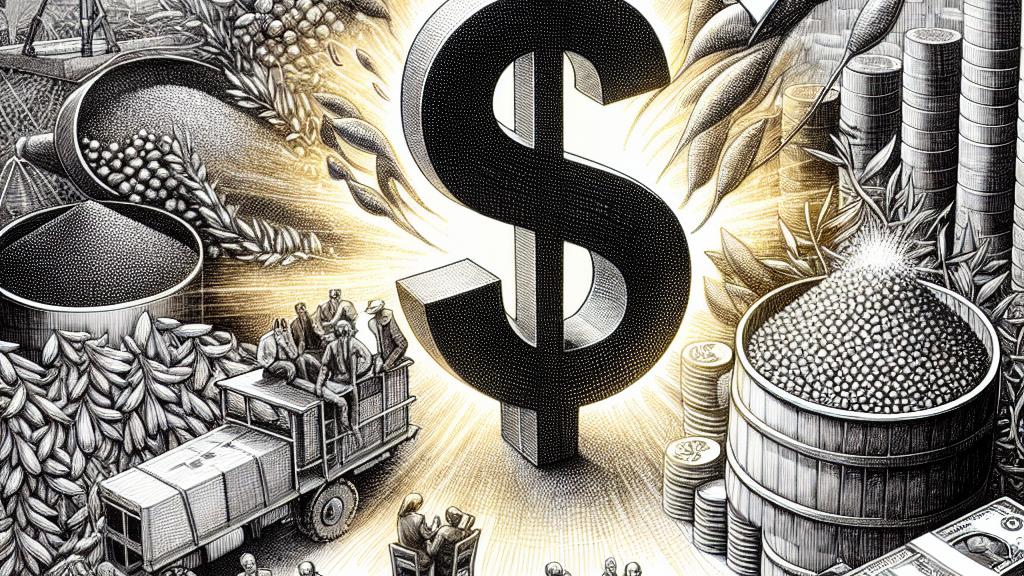Dollar Retreats Amid Commodity Surge and Inflation Insights
Overview
- The US dollar has dramatically retreated against the Brazilian real, reflecting new economic realities.
- Surging commodity prices bolster Brazil, showcasing the dynamic nature of resource-rich economies.
- Attention turns to inflation and GDP reports that are set to reshape currency and market trends.

Economic Context in Brazil
Recently, the US dollar has taken a significant hit, falling to R$ 5.46, marking a striking 1.31% decline. This substantial drop is not just an isolated event; it mirrors a wider trend in global financial markets where uncertainties reign. For Brazil, a nation renowned for its abundant natural resources such as soybeans and iron ore, this downturn offers a silver lining. Rising commodity prices are energizing local exporters and farmers alike, injecting much-needed vitality into the economy. Coupled with this, the DXY index's recent 0.48% dip signals a period of volatility, prompting discussions among investors about the future trajectory of economic policies and market stability.
Influence of Global Markets
Looking beyond Brazil, the international landscape reveals how interconnected economies truly are. China's central bank recently enacted pivotal changes, reducing reserve requirements and lowering interest rates, which are designed to stimulate economic growth. These actions are crucial, especially considering China’s pivotal role as the world’s largest importer of raw materials. When China's economy thrives, it translates directly to higher commodity prices and boosts demand for Brazilian exports like coffee and sugar. Thus, as the Brazilian currency strengthens alongside rising export prices, traders are keenly awaiting the release of inflation figures from Brazil and GDP estimates from the United States. These upcoming reports are expected to create ripples through the currency markets, influencing not only local investors but also global economic dynamics.
Inflation Trends and Commodity Prices
Understanding the direct relationship between soaring commodity prices and inflation is essential for grasping today's economic realities. When prices of essential commodities, such as food and fuel, spike, it impacts everyday lives dramatically. For instance, a recent surge in oil prices leads to noticeable increases at the gas pump, compelling consumers to pay more for transportation—and consequently, for groceries. In Brazil, inflation rates have shown signs of stabilization, hovering around four percent, providing a glimmer of hope following years of economic challenges. Yet, as fresh economic reports approach, the anticipation builds among economists and traders about how these inflation metrics will influence monetary policy and consumer behavior. Ultimately, these reports are not just numbers; they hold the potential to either foster confidence or engender apprehension in the market.

Loading...